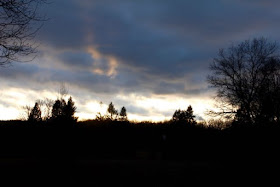Spring is a season of transition. It brings storms and blue skies. It's harder and harder to tell what's a "normal" Spring these days. Our increasingly volatile Spring weather has become a "new normal," just as Minnesota, and much of the rest of the country, are facing "new normals" in many of their economic sectors. Mining for coal in Appalachia is in even worse shape than taconite mining in Minnesota. Maine, like Minnesota, is losing paper mills on which local communities depended, but is looking for Federal assistance in how to diversify its economy to help respond to the kinds of changes many rural areas are facing. In Maine,
"Sens. Susan Collins and Angus King have asked the federal government to help rural Maine assess its strengths and opportunities as part of an effort to diversify local economies. This is important, if belated, work that should be happening with or without federal support — and should have begun in earnest long ago.
"Earlier this month, the senators wrote to Commerce Secretary Penny Pritzker, asking her to assemble an Economic Development Assessment Team to help rural regions in Maine inventory their assets and identify challenges and opportunities to diversify their economies. The letter emphasizes the state’s forest products industry, which still plays an important role in Maine’s economy, but such diversification will have to go well beyond trees and paper to succeed."
Spring storms usher in a new season of growth
Photo by J. Harrington
Have Sens. Amy Klobuchar or Al Franken asked for similar assistance for northern Minnesota? Has anyone on the Iron Range or in Minnesota's forestry sector considered asking our Senators to seek such help, or have we figured out that the solution is to go back to the "good old days?"
As you look toward tomorrow, accept that fossil fuels have a limited future, unless we humans are willing to accept a limited future for all of us. Then, ask where we can find the leadership we need to resolve such issues as what look like excessive charges imposed on solar generation by rural electric coops? We long ago passed the point where we can rationally consider simply tinkering with what we have and expect the results we want. "More of the same never solved a problem." I've read, as I suspect you may have, that both paper and taconite production are major consumers of electric power. Renewables have become cost-competitive with traditional sources and the conversion will create a number of jobs, but not if we're more concerned with protecting and maintaining what we currently have than with moving to the kind of infrastructure and economy we need for the future. We need the vision to look, collectively, for systemic change.
The internet helped us learn how to benefit from and manage resilient, distributed systems. Local food systems (not including industrial agriculture) are following a similar pattern. It's time for our electric and communications distribution systems to more fully adopt that model. Or, we can become the 21st century equivalent of Easter Islanders. Spring is here; Spring is a time for new beginnings; now is a time for Minnesotans facing major economic issues to work with others in similar situations and find new beginnings that work for us all.
Spring is like a perhaps hand
III Spring is like a perhaps hand (which comes carefully out of Nowhere) arranging a window,into which people look (while people stare arranging and changing placing carefully there a strange thing and a known thing here) and changing everything carefully spring is like a perhaps Hand in a window (carefully to and fro moving New and Old things, while people stare carefully moving a perhaps fraction of flower here placing an inch of air there) and without breaking anything.
********************************************
Thanks for visiting. Come again when you can.
Please be kind to each other while you can.

No comments:
Post a Comment